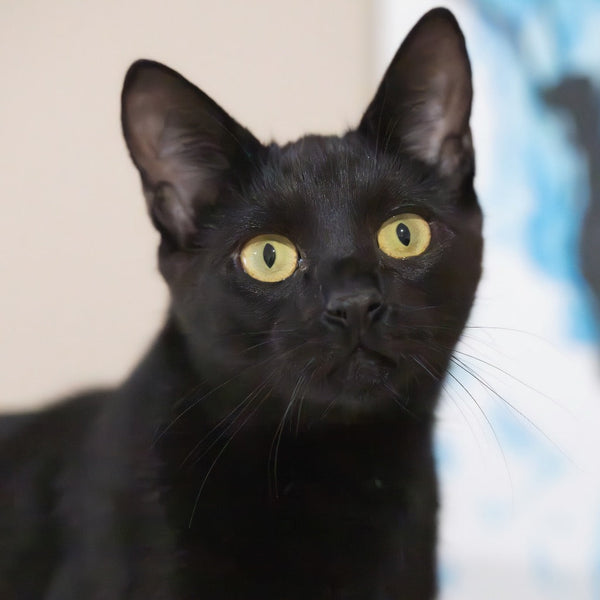Yes! I absolutely love this bird! The quaker parrot (also often referred to as the monk parakeet) is a positively adorable, intelligent and playful mid-size parrot native to Argentina and boarding countries in South America. These little balls of energy are known to pack a fatal punch of personality in a small package. A quaker could be the perfect fit for your family, if you are able to provide proper care and follow a few basic guidelines to keep them happy & healthy!
Caging Your Quaker
An appropriate cage size for a quaker should be tall, with a width at least 1.5x your birds wingspan, and a length at least 3x the wingspan. Flat roof cages will provide more usable space for the same amount of room taken than rounded or V shaped roofs. Your conure is going to want to play and climb on the sides of the cage, so purchase a cage with strong, horizontal metal bars no more than 3/4" apart. The bottom of the cage should either have a grate or a layer of bird-safe bedding. Use a seed catcher to keep debris from scattering out of the cage. Avoid newspapers!! The ink can make your bird sick if it decided to shred and accidentally ingests. It is important to provide a variety of perches, all varying in texture and diameter. The more options you provide, your bird can decide what is most comfortable to eat, sleep, etc. Always provide lots of toys for your parrot to keep himself entertained when you are not around. Cycle the toys every 3-4 weeks to prevent boredom.
Feeding Your Quaker
We recommend feeding a seed/pellet mixture designed for small parrots, Pisces recommends: Roudybush California Blend for Medium Parrots. You should supplement your birds diet with fresh fruits and vegetables, as well as the occasional small helping of a healthy human treat such as lean meat, whole wheat pasta, whole wheat rice, low fat cheese and hard-boiled egg. If your bird refuses to eat fruits & veggies, you may need a supplement your birds drinking water. Talk to a vet about what supplement is right for your bird. Uneaten portions of fruits, veggies and foods that can expire should be discarded daily. An occasional treat you can give your bird is spray millet, which is highly nutritious and easy to digest, but can cause weight gain if over indulged. You must also give your bird access to a cuttlebone , that will provide calcium and help your conure keep its beak in tip-top shape! Avoid avocado, iceberg lettuce, corn, or any foods high in fat, salt, caffeine, sugar, or artificial flavors & colors.
Quaker Parrot Behavior
Quaker parrots are very social animals who always want to be the life of the party. They are known to charm people with their playful and curious personalities. They are very social and rely on having a relationship with its owner (or other quakers if you have a pair or group) to be happy. In your time spent together, the relationship between you and your bird will evolve far past "pet parrot" to become a "companion parrot". Quaker parrots are wonderful talkers, and are capable of learning most words and phrases if raised solo. They can be trained with positive reinforcement using treats as a reward (Pisces recommends: Higgins Sunburst Fruit to Nuts). The strange worbles and quakes that a quaker parrot emits is very unique and can echo through your home when excited or seeking attention. Quakers are very intelligent for their size, and are subject to behavioral problems if not properly trained. Compared to other parrots, quakers can be overly-affectionate and very tame if properly hand-raised.
Quaker Playtime
Keeping a single parrot (opposed to a pair or group) requires a great deal more of human interaction and stimulation for your parrot. However, a single kept bird will also be much easier to tame! If you have a young quaker it usually doesn't take long for them to bond with their new owner. The main concern with parrots is biting and the sooner this is corrected, the better. When your bird bites down too hard, be sure NOT to respond in a way that would be enjoyable or proactive to your bird (such as pulling away and/or making noise). The best way to correct this behavior is to divert the beak to to an appropriate toy, or simply leave your bird completely alone for 5-10 minutes. Foraging toys are great and promote your birds natural instinct to forge (Pisces recommends: HARI Bamboo Ring Abacus). Ideally, you should be able to provide your bird with 2 -3 hours of supervised play time outside of its cage. Quakers like consistency! If you spend most of your time out of the house or have an irregular schedule, a quaker may not be right for you.
Grooming
Allow your conure to bath in a shallow bath or spray with a mist bottle every 2-3 days. This will help keep the feathers healthy, and allow new feathers to grow in easily. You will likely want to get your conures nails trimmed and wings clipped at some point. Keeping wings clipped will make it easier to train and bod with your parrot. Pisces Pet Emporium performs this service free of charger! Simply give us a call or pop in to the shop to book an appointment!




